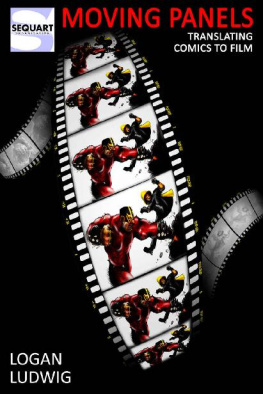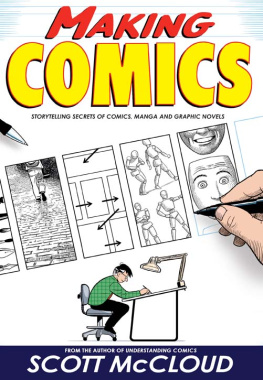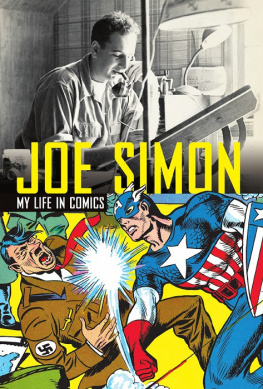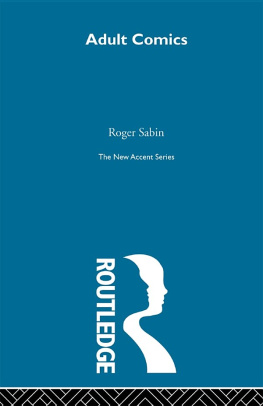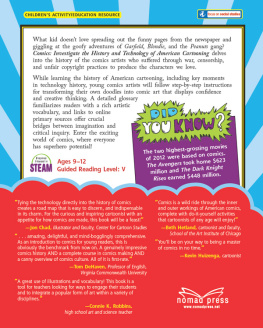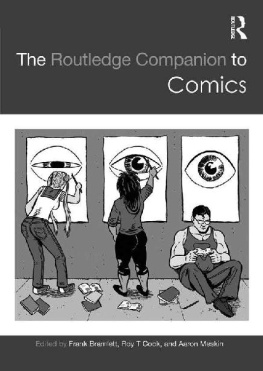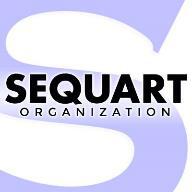How to Analyze & Review Comics:
A Handbook on Comics Criticism
EDITED BY
Forrest C. Helvie
Sequart Organization (Edwardsville, Illinois)
Copyright 2021 by the respective authors. Characters and works mentioned herein are trademarked by various owners.
Kindle edition, June 2022.
All rights reserved. Except for brief excerpts used for review or scholarly purposes, no part of this book may be reproduced in any manner whatsoever, including electronic, without express consent of the publisher.
Cover by Julian Darius and Jim Wilcox. Book design by Julian Darius. Interior art is by various respective rights holders.
Published by Sequart Organization. Edited by Forrest C. Helvie.
For information about other titles in this series, visit sequart.org/books .
Contents
Acknowledgements
First, I want to acknowledge and thank the contributors to How to Analyze and Review Comics , without whom this project would never have come together. You have offered infinite patience as we navigated many life challenges that delayed its release, and I look forward to the discussions your work will engender amongst the comics community and beyond.
Second, I want to thank the generous comics storytellers who offered their time to be interviewed for this volume: Becky Cloonan, Michael Avon Oeming, FCO Plascencia, Rachel Deering, Brian Michael Bendis, Comfort Love, Adam Withers, Jim Zub, Jose Villarubia, Hannah Means-Shannon, and Andy Schmidt. No critic worth their salt operates in a vacuum, and your insights into comics will no doubt help many critics, commentators, students, and journalists better understand and discuss the medium that we love so much.
Next, I want to send a special thank you to the students in my past ENG 274: Comics as Literature courses at Norwalk Community College, who had the opportunity to use early drafts of this text in their course. Your feedback and responses were incredibly helpful in bringing this book together in its final form.
Additionally, I would be remiss to not thank the comics press editors I have had the privilege to work with over the years. At Newsarama, David Pepose and Chris Arrants constant guidance and feedback helped me produce some of my best interviews and written comic critiques. Pep also gave me big break as a big time reviewer and critic, and Ill always be grateful. At Marvel, Ben Morse brought my writing back to basics and helped me developed even further. Without a doubt, I am a better writer and critic for their support and input.
Finally, I want to offer a special thanks to my publisher, Julian Darius, and Sequarts Editor in Chief, Mike Phillips. You both gave me my first opportunity to write about comics years ago on Sequart.org, and it feels fitting that my first scholarly text about comics criticism should find its home at Sequart. I cannot thank you enough for all of the hours of support you both provided in bringing this collection to life.
And as always, much love to my wife and sons. Any writer knows that time spent writing often comes at the cost of time spent away from ones family. I could have never done this without your support and love.
Forrest C. Helvie
Editor
Introduction: Thoughts on Reviewing Comics
by Forrest C. Helvie
Dont forget the rules, man. This little shit is the enemy. He writes what he sees. although it would be cool to be on the cover.
Almost Famous (2000).
Is this a one-star or a five-star comic? What really is a perfect 10?
Every Wednesday, local comic shops and online retailers provide readers with a bevy of new comic book titles and issues. Some superhero series take flight while others crash without rhyme or reason. Some of us who bear witnesses to these initial successes and failures are likely to write the occasional reviews on these comics. Other readers, however, growing tired of the superhero boom and move onto other genres to read and write about.
Perhaps youre not a Wednesday Warrior and have been assigned a graphic novel to read either as a part of a class or your news editor assigned it to you. Maybe comics are a somewhat or altogether unfamiliar format for reading and beyond writing about the story, youre not sure how exactly to go about discussing the art.
So how do we go about performing this task of writing about comics, especially when there are many different genres of this four-colored medium and our experience with reading comics from an analytical perspective may be limited? Is there a science to determining whether a given comics first issue has the right stuff to be the next big thing or at the very least, continue selling for another few months? How do we know whether or not an ongoing series has slowly begun nose-diving or, instead, is moving into a brave, new world of creative storytelling? How do we approach a graphic novel that does not appeal to mainstream sensibilities in its art and narrative direction?
Not surprisingly, there is no one surefire answer to how to review a comic. Ive written for mainstream sites, such as Marvel.com and Newsarama, to more academic journals and publications, and without fail, many of the writers from these different publishers approach their funny books from a variety of different perspectives. However, there are certain characteristics many of us try to keep in mind when applying a critical lens to comics of all shapes and sizes.
While we all have our opinions, theyre not necessarily going to have the same value. After all, its one thing to steer readers away from poorly a conceived and created comic its another thing altogether when a critic unfairly skews other readers opinions against a new book when it probably deserves a more even-handed review. What you will find in this collection are just a few points from across the spectrum of comics from academics and journalists to professional creators that you should consider before drafting a paper for one of your English classes, writing up that next scathing review for a personal blog, posting some comments to a message board, or even just in passing conversation with fellow fans at the local comic shop. Although this handbook makes no assertion that it will cover every element, we hope it will provide a solid place to launch a more thoughtful and informed discussion about comics and their ability to convey narrative in ways altogether different from other forms of storytelling.
Comics is a visual medium, so theres no escaping the fact the art needs to be good. But thats a loaded word, isnt it? Good. How does one measure taste in a broad sense when aesthetic interest is so highly subjective? Simple we do our best to avoid overly broad terms like that. So how do comic readers learn to speak about the artwork?
Before digging into the collected essays in this text, Id like to share some other resources Ive used to increase my understanding behind the process that goes into making comics and the different ways the medium functions. These sources have helped Id like to think to improve the level of critical analysis that I bring to my comic reviews and analysis. Its certainly not comprehensive, but it does provide some key sources of reading and experience worth pursuing:
- Scott McClouds Understanding Comics . Required reading that provides a formalist breakdown of comics and comics theory. I also have two of his other books Reinventing Comics and Making Comics and while the mileage varies on these two ( Reinventing Comics sometimes showing its age), Ive still found them useful and informative all the same.


